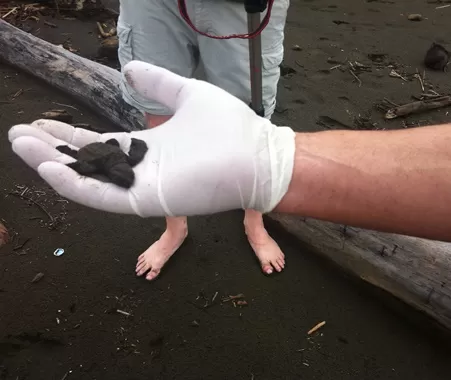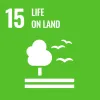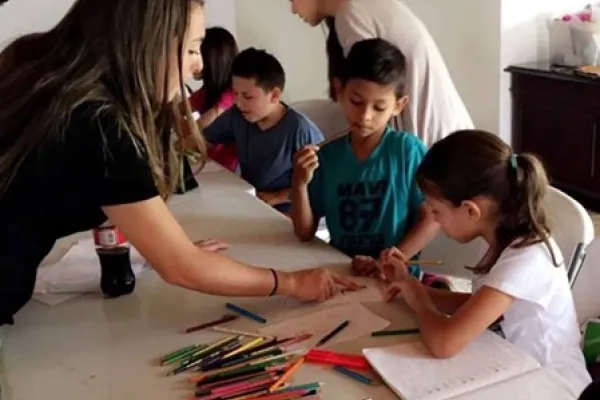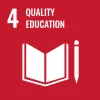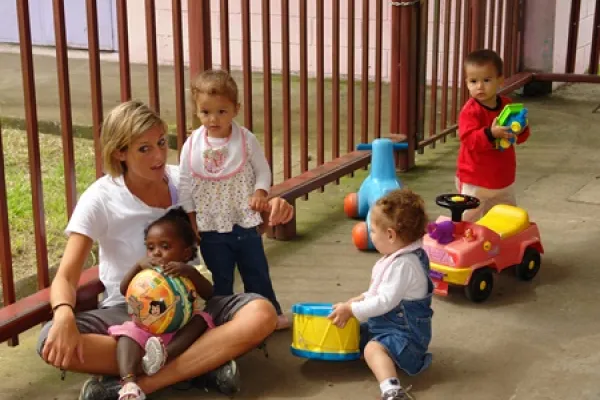Overview
Sendo um voluntário do Turtle & Sloth Conservation Program na Costa Rica, você estará trabalhando ao lado da equipe local que já está engajada em salvar as vidas desses animais. Nos últimos anos, houve um declínio enorme no número de tartarugas e agora elas estão na lista de espécies ameaçadas de extinção. Se não agirmos agora, podemos perder esses animais para sempre.
Este projeto incrível está localizado a uma distância de cerca de 30 minutos ao sul da pequena cidade de Quepos, na costa central do Pacífico da Costa Rica, aproximadamente 1 hora ao sul de Playa Hermosa e Playa Jaco e 2 horas e meia de San Jose. Oferecendo uma extensão relativamente remota de praia, em grande parte não poluída por ruído e luz, este é um local de nidificação popular para milhares de tartarugas marinhas a cada ano. As espécies mais comuns incluem Olive Ridley, Pacific Green, Leatherback e Hawksbill.
Os voluntários protegerão e cuidarão dos ovos de tartaruga depositados na praia durante a temporada de nidificação - que vai de agosto a fevereiro. Além disso, os voluntários darão suporte ao trabalho de pesquisa e conservação que envolve contagem de tartarugas, medição de ninhos, coleta de informações científicas e patrulhas noturnas na praia. Eles também ajudarão a proteger os ninhos de tartarugas de caçadores humanos, auxiliarão nos programas de coleta de ovos e ajudarão nas incubadoras. Os voluntários também podem ter a fantástica oportunidade de participar da liberação subsequente de filhotes no mar!
Além disso, os voluntários também poderão monitorar populações locais de preguiças para proteger e conservar essa espécie. Nem preciso dizer que será uma oportunidade incrível de ganhar experiência única em projetos de conservação, aprender mais sobre o povo e a cultura da Costa Rica e viajar para lugares lindos.
Horário de trabalho voluntário
Horário de trabalho voluntário
Os voluntários terão que pegar um voo para San Jose, de onde serão levados para acomodações em famílias anfitriãs em Santa Barbara de Heredia, 40 minutos ao norte de San Jose. (A chegada é no sábado)
No domingo, a equipe local providenciará sua coleta na família anfitriã e transferência para o local do projeto por ônibus público. Um representante da equipe local do projeto o encontrará na chegada à estação de ônibus e o levará até as acomodações para se instalar.
Segunda-feira: Você será levado ao local do seu projeto e apresentado ao líder do projeto, que fornecerá informações específicas sobre sua função.
Os voluntários precisam ser flexíveis para trabalhar neste programa, pois os horários dependem muito da estação e das atividades de reprodução que ocorrem. No entanto, um dia geral seria mais ou menos assim:
4:30 da manhã - Patrulha da Praia
Esta é uma atividade que acontece o ano todo, mesmo na baixa temporada (março a julho). Voluntários têm que sair para uma patrulha matinal da praia para monitorar e proteger os locais de reprodução das tartarugas.
8:00h - Café da manhã no alojamento
Os voluntários geralmente ficam livres depois do café da manhã e podem aproveitar esse tempo lendo, explorando a área local, nadando ou relaxando na praia.
13h00 - Almoço no alojamento
Tarefas de voluntariado da tarde Após o almoço, os voluntários receberão várias tarefas que variam principalmente dependendo da estação. Normalmente, os voluntários podem esperar trabalhar de 2 a 3 horas em cada tarde de dia útil, completando tarefas para monitorar, preservar e cuidar de tartarugas marinhas e animais selvagens (como preguiças, papagaios, araras, jacarés e mais) na área local.
Noites/Noites Tempo livre/Patrulhas noturnas
Durante o período de nidificação (de agosto a fevereiro), os voluntários estarão envolvidos em patrulhas noturnas na praia para proteger as tartarugas, coletar ovos e monitorar os locais de reprodução em geral.
Função e responsabilidades do voluntário
Função e responsabilidades do voluntário
Como voluntário do programa de conservação na Costa Rica, suas principais tarefas seriam:
Limpeza de praias, patrulhamento noturno, monitoramento de ovos de tartaruga
Preparação e manutenção dos viveiros de tartarugas
Auxiliar a equipe local e trabalhar em projetos para melhorar o ambiente para os ninhos e tornar a jornada dos filhotes até o Oceano Pacífico mais segura
Atividades de reflorestamento e manutenção do habitat natural das preguiças
Educar a população local sobre o tráfico de tartarugas e suas consequências
Project Requirement
Project Requirement
Os voluntários devem ter 18 anos ou mais no momento da adesão ao projeto. Você precisa ter uma mente aberta e uma atitude flexível para trabalhar em um ambiente novo e diferente. O voluntário deve trazer energia e entusiasmo para fazer a diferença. Os participantes devem estar em forma e saudáveis no momento de ingressar no programa e devem estar preparados para trabalhar ao ar livre e colocar a mão na massa. Os participantes do programa devem ter um grande interesse e amor pelo trabalho de conservação animal. Os participantes não devem ter condenações criminais e devem fornecer um relatório de verificação de antecedentes criminais limpo.
Schedule a Google Meet with a Program Advisor
Interested in our programs? We're here to provide expert guidance
- Get Detailed Info
- 20 min One -on-One meeting
- Get expert advise
- Application Guidance
Photo Gallery
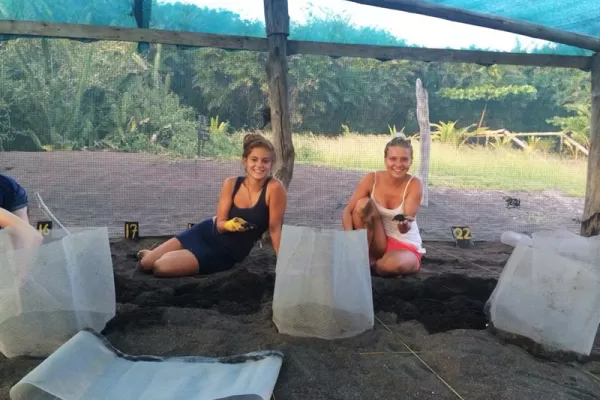
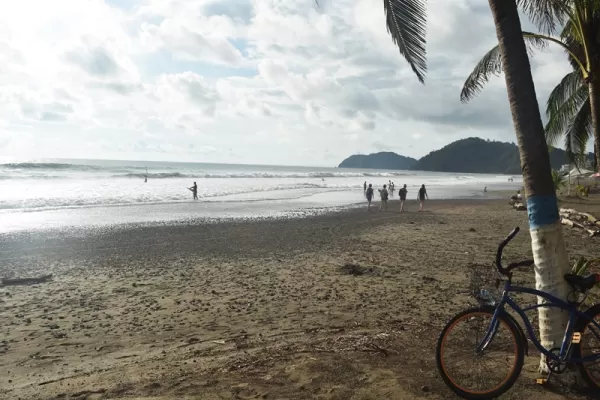
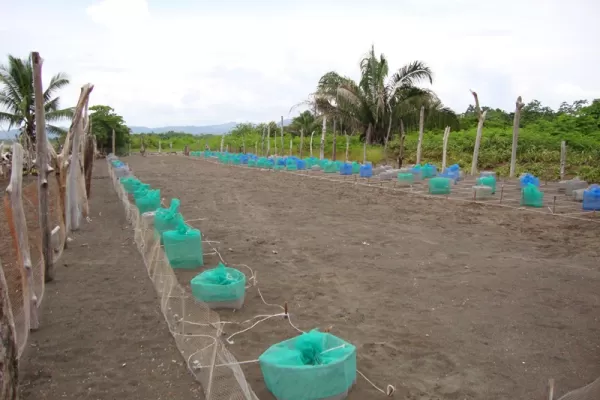
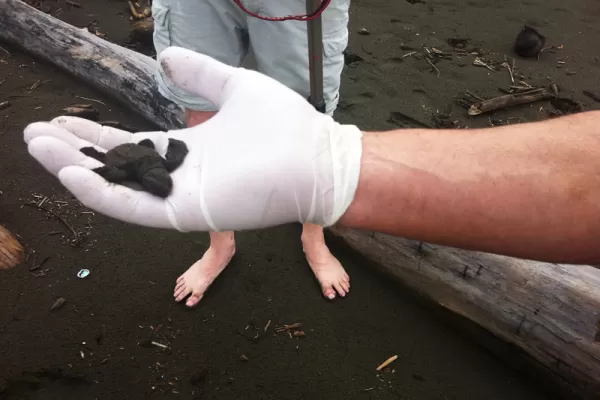
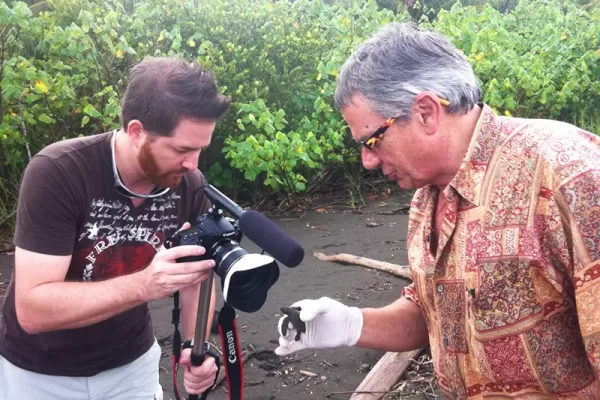
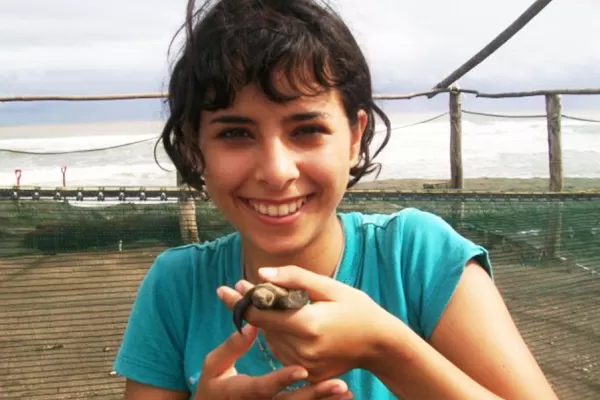
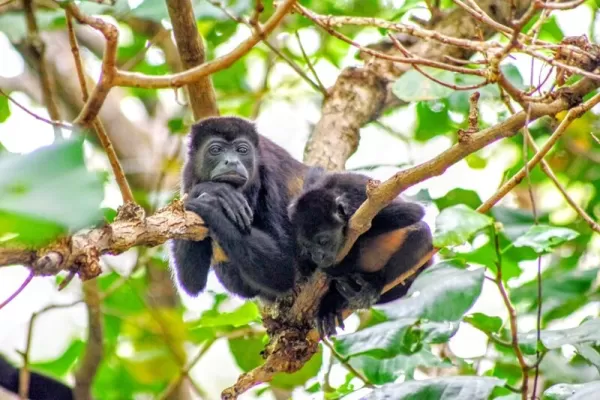
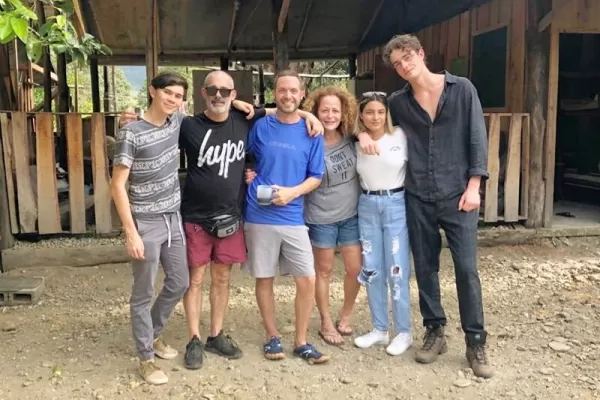
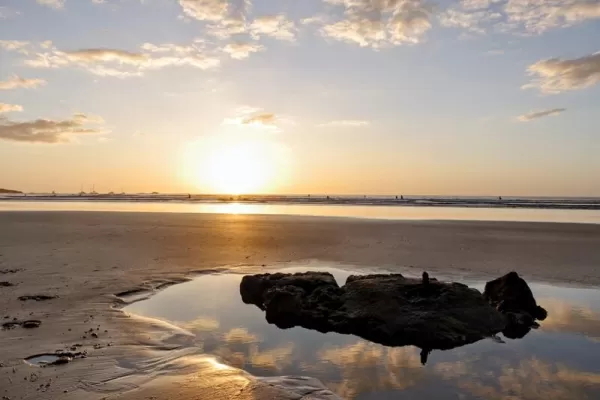
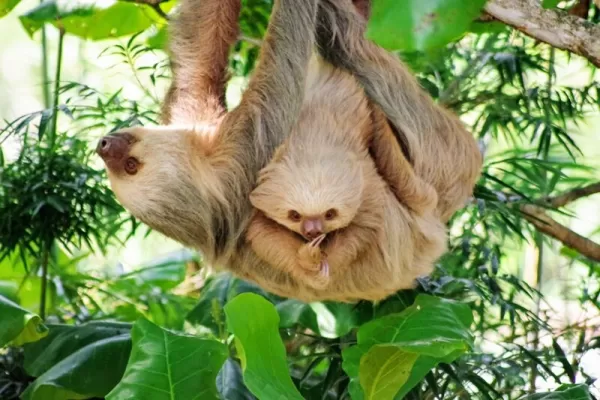
Living
Living
Transfer do aeroporto
Os voluntários são buscados no Aeroporto Internacional de San Jose pelo coordenador ou representante local e transferidos para a acomodação da família anfitriã em Santa Barbara de Heredia para a primeira noite.
Alojamento
Ao chegar à Costa Rica, a acomodação é oferecida em uma casa de família anfitriã por uma noite. No local do projeto, os participantes ficam hospedados na casa dos voluntários em Matapalo, onde os quartos são em estilo dormitório, compartilhados entre quatro voluntários. A casa dispõe de todas as comodidades básicas, incluindo banheiros em estilo ocidental, eletricidade, chuveiros de água fria, Wi-Fi, áreas comuns e uma cozinha bem equipada. A roupa de cama é fornecida, portanto, os voluntários precisam apenas trazer produtos de higiene pessoal e uma toalha.
Orientação
Todos os voluntários recebem uma Orientação a partir da data de início do projeto. A orientação é conduzida pela equipe local do projeto e abrange tópicos como Visão Geral do Projeto, Regras e Expectativas, Segurança e Introdução ao seu projeto e estágio.
Refeições
Na casa de família anfitriã, são fornecidas duas refeições por dia. Durante a estadia no projeto, café da manhã e almoço são oferecidos diariamente. O jantar também pode ser organizado com o local do projeto por uma pequena taxa, ou os voluntários podem desfrutar de um jantar na região com outros participantes.
Durante seu tempo livre
Os voluntários têm a liberdade de visitar e conhecer lugares durante seu tempo livre ou nos fins de semana. O país oferece belezas naturais incomparáveis, vulcões ativos, florestas tropicais e uma ampla variedade de parques nacionais e ecoturismo. Além disso, a Costa Rica possui mais de 1.600 quilômetros de belíssimas praias de areia branca e preta.

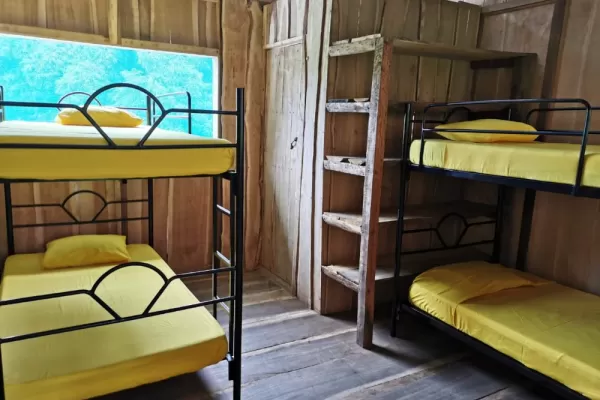
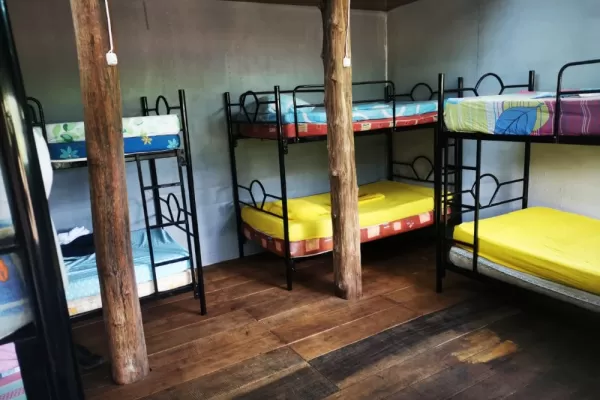
Dates
Dates
January
12
26
February
02
16
March
02
16
30
April
06
20
May
04
18
June
01
15
July
06
20
August
03
17
September
07
21
October
05
19
November
02
16
December
07
21
January
04
18
February
01
15
March
01
15
April
05
19
May
03
17
June
07
21
July
05
19
August
02
16
September
06
20
October
04
18
November
01
15
December
06
Costs
| Duration |
Program Fee
|
Choose your currency
|
|---|---|---|
| 1 Week | $699 | |
| 2 Weeks | $1131 | |
| 3 Weeks | $1625 | |
| 4 Weeks | $2055 | |
| 5 Weeks | $2455 | |
| 6 Weeks | $2855 | |
| 7 Weeks | $3255 | |
| 8 Weeks | $3655 | |
| Extra Week | $420 |
Please Note: An application fee of is charged over and above the program fee as an application payment. A 5% international banking fee is charged for credit card payments of program fee in USD/AUD.
Pelo que você esta pagando?
- Assistência 24 horas e suporte da Equipe VS
- Informações abrangentes antes da partida
- Pickup do Aeroporto Internacional de San Jose e traslado ao alojamento
- Transferência de ônibus para Playa Matapolo e retirada da estação de ônibus
- Orientação na chegada ao Projeto
- Acomodação estilo dormitório no projeto
- Refeições
O que NÃO está incluído?
- passagem aérea
- Visto
- vacinas
- Viagens e excursões de fim de semana
- Quaisquer despesas pessoais
- Seguro de viagem (disponível a um custo nominal)
- Estadia pós-projeto em San Jose
- Viagem de volta para San Jose
FAQ's
Health and Safety
-
Do I need to buy health insurance?
-
Yes, for all participants, it is mandatory to have a valid travel medical insurance for their trip. Volunteers have the option to purchase Travel and Medical Insurance at a nominal extra cost from Volunteering Solutions. To provide the best option to our participants, we offer comprehensive insurance coverage in collaboration with a leading insurance provider.
If you already have a valid Travel and Medical insurance, you can email us a copy of the same. It is also advised to bring along the Insurance documents during your trip. -
What immunizations/vaccinations will I need?
-
All participants are recommended to consult their physician or travel doctor before traveling to Costa Rica. To view the general list of vaccinations recommended for your travel to Costa Rica, click">https://wwwnc.cdc.gov/travel/destinations/traveler/none/costa-rica">cli… here.
-
How safe is Costa Rica in general?
-
Costa Rica is a tourist friendly and safe destination. Volunteering Solutions is very particular about the safety of its international volunteers. We have stringent selection criteria for host family accommodation. You will be given safety precautions and instructions by the local coordinator team during the orientation as well as in your Pre-departure handbook after you become an enrolled participant. Apart from that, we advise volunteers to consult their in-country coordinators before embarking on a weekend trip or going on a night out.
Application and Program Details
-
Can I volunteer as part of a group?
-
Yes, you are welcome to take part in Costa Rica Volunteer Programs as part of a group. We welcome families, friends, high school students, college/university and corporate groups to volunteer together in the Costa Rica volunteer programs.
-
What are the Program locations in Costa Rica?
-
The Childcare and Teaching projects are located near San Jose, primarily in the areas of Santa Barbara de Heredia.
The Turtle Conservation project is located in both Pacific Coast as well as Osa Peninsula.The Wildlife and Animal Rescue Center projects are located in Alajuela province as well as near Puerto Viejo.
-
When should I apply for the volunteer programs in Costa Rica?
-
It is advised to apply for the projects once the volunteering/ traveling dates are decided as there are limited spots available. The application fee is valid for one full year and can be sent earlier than the desired period of volunteering, for timely confirmation of the seat. As soon as you decide the travel dates, we suggest you to apply for the program and hold your spot. We abide by the first come first serve policy.
-
I haven’t traveled or volunteered abroad before. Can I still be a part of VolSol?
-
Yes, most definitely you can, as we believe that every participant brings something new to the project. If you do not have previous experience, we offer you the opportunity to have a great start with us. We make international volunteering easy – not only are our Volunteer Abroad opportunities rooted in offering you extensive support, but they are also very affordable.
-
How long will it take to process my application? Will my application be accepted?
-
Usually, it takes around 10-12 working days for the application to be processed and placement to be confirmed. After we review your CV and documents, your booking is confirmed and the booking confirmation is updated in your My Account and you can view the information in your account. The application acceptance depends on the availability of seats in the project as well as the eligibility criteria of the program (age, skills and experience etc.).
-
Does VolSol provide with a reference or a certificate after program completion?
-
Yes, we will provide you with the Certificate after successful completion of your program. The certificate is provided on request.
-
Are there any necessary requirements to participate in the Costa Rica volunteer programs?
-
Below are the necessary requirements to participate in the Costa Rica volunteer projects:
Volunteers must be 17 years or older for Teaching, Childcare, and Spanish Immersion at the beginning of the program. For all other programs, you need to be 18 years or older.
Volunteers joining the medical volunteer project must be either Pre-Medical, Medical or Nursing student or possess other qualifications related to medical and nursing field. Medical professionals such as doctors and nurses are also welcome to join the program.
Volunteers need to have an open mind and flexible attitude for working in a new and different environment.
The volunteer should bring energy and enthusiasm to make a difference.
The participant must be in good health.
Knowledge of Spanish (basic to intermediate) is necessary for all the programs. -
When do I need to arrive in Costa Rica for my program? What will happen once I arrive in Costa Rica?
-
All volunteers have to arrive one day before their program start date. You can view your arrival dates here. Volunteers are picked up from the Juan Santamaria Airport by the local coordinator or representative and taken to the respective host family accommodations. On the next day, i.e. Monday, there will be an orientation session which will cover the program highlights and provide you details about the city. You will get to know about the local culture, marketplaces, ATMs, internet cafes and where to shop for your daily essentials. On Monday, volunteers would also be required to take a Spanish test to assess their Spanish knowledge.
To add to the project experience, you can also join the Spanish Immersion Week which gives you a crash course in Spanish and even tests your current Spanish skills which would help you in volunteering, and you would also get a chance to experience Costa Rican culture, learn cooking and Latino dancing before beginning the program.
Note: Host accommodation is located in suburbs of San Jose in the Heredia and Santa Barbara areas, along with your projects placements.
Accommodation and Living
-
Are there more expenses once I arrive in Costa Rica?
-
Your program fee does not cover your personal expenses. You will need to provide for yourself your personal expenses, such as bottled water, local transport, telephone, shopping, sightseeing etc. However, you should carry around $70-$80 per week for your basic personal expenses. This amount can vary and you would need a higher amount if you choose to go on weekend trips out of town.
-
Can I know more about accommodation and food arrangements?
-
Volunteers working in Turtle Conservation Project stay in ranger house, volunteer house accommodations close to the project near the beach. Dorm-style accommodation is provided where you will be sharing rooms with other volunteers (same gender basis). Upon arrival in Costa Rica, volunteers are provided lodging in a host family accommodation in Heredia or Santa Barbara. After completing the orientation and project introduction on the first days, volunteers join their respective Turtle Conservation Project in either Pacific or Caribbean Coast.
For Teaching and Childcare project, volunteers will be staying with host families. More details about the host families would be provided after you apply for the program. Volunteers would be provided meals 2 times a day.
Volunteers working in the animal rescue center project in Puerto Viejo are provided accommodation in a hostel in San Jose on arrival. While at the project volunteers stay at a dorm style hostel accommodation. Meals are not included but volunteers cook their own meals at a fully equipped kitchen.Volunteers in Osa Peninsula are provided accommodation at the project site itself in dorms.
-
What if I have my own accommodation. Can I still volunteer for the project?
-
Unfortunately, the entire volunteering experience is as much about volunteering on your project, as it is about the cross-cultural exchange and community building. A lot of that happens through the accommodation that we have set up, where one can enjoy by being with like-minded people. Additionally, for safety reasons, all volunteers must live in the allotted accommodation.
-
For how many hours do I have to volunteer in a day?
-
Volunteers usually work for 4 to 6 hours a day depending on their program. You will have weekends off so you can travel on weekends. However, volunteers need to be flexible, open-minded and understand that work requirements can change as well on certain occasions.
-
Can vegetarians be accommodated?
-
Yes, however, you must inform us in advance and also mention about any dietary requirement in your application form.
-
Where can I change my money in Costa Rica? Are there ATMs in the city?
-
You can change money upon your arrival at Juan Santamaria Airport or from the bank. There is a good network of ATMs as well.
-
Would I have free time during my program? Can I do sightseeing during my program?
-
Depending on your project placement, you will get evenings and the weekends free to travel and explore the place. In the evenings, volunteers usually get together and go out for social gatherings, eat out or just relax at the volunteer house. Weekends are free for the volunteers and you can go for short weekend trips. There’s actually so much to do in Costa Rica. Visit Nicoya Peninsula, Arenal Volcano, Corcovado National Park, Monteverde Cloud Forest Biological Reserve, La Paz Waterfall Gardens, Tabacón Hot Springs, San José, Caño Negro Wildlife Refuge, Tortuguero National Park and much more.
The local coordinators will be happy to help you with more information.
Flights and Visa
-
Does Volunteering Solutions help with Visa?
-
Participants (most nationalities) require a Tourist Visa to travel to Costa Rica. Travelers from most countries can get a 90-day permit stamped on their passport on arrival.We advise you to check with your nearest Costa Rican embassy as well.
-
What are the recommended airlines to fly to Costa Rica?
-
Juan Santamaría International Airport is well connected with direct flights coming in from different destinations in the US and South America. For volunteers coming from North America, following Airlines are recommended:
US Airways
Delta
For those flying in from Europe, direct flights are available, and the recommended airlines are:
Condor
Iberia
Connect with Past Volunteers
-
How can I connect with past Volunteering Solutions Costa Rica alumni as well as other former and current volunteers?
-
We encourage volunteers to get in touch with former Volunteering Solutions Costa Rica program participants and also other program participants joining our projects. You are recommended to join the Volunteering">https://www.facebook.com/VolunteeringSolutions/">Volunteering Solutions Facebook Page or Facebook">https://www.facebook.com/groups/VolunteeringSolutions/">Facebook Group to communicate with other participants.
To read alumni interviews from past participants, visit ?the Meet">https://www.volunteeringsolutions.com/meet-a-volunteer">Meet a Volunteer section on our website.


























